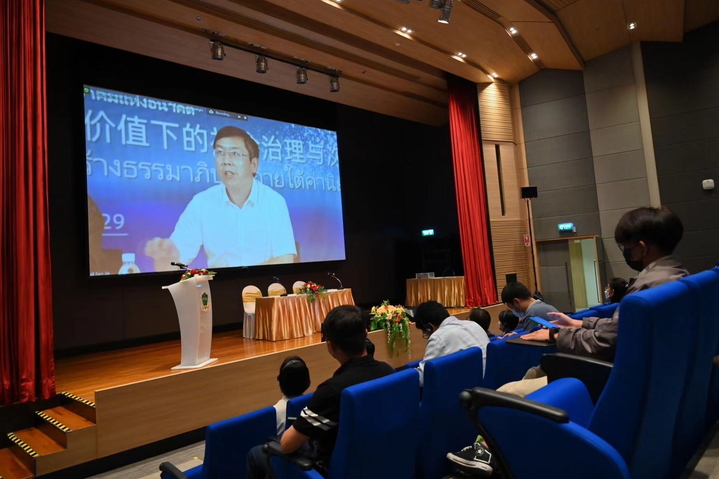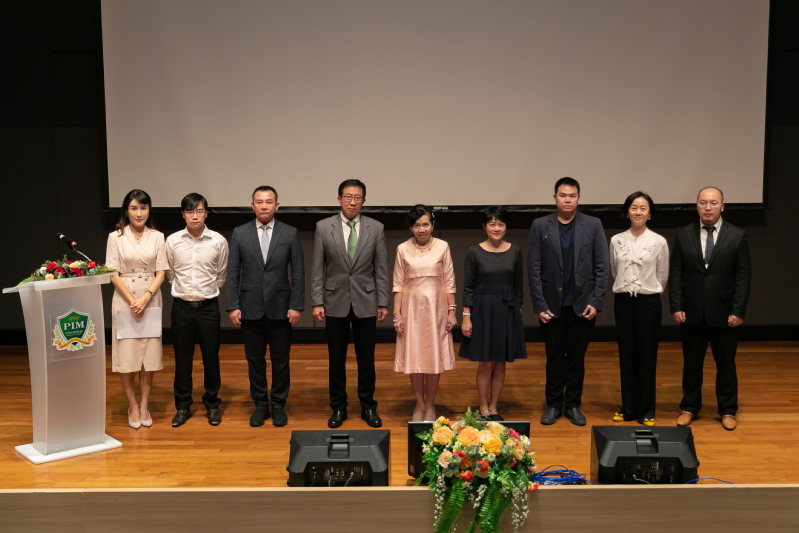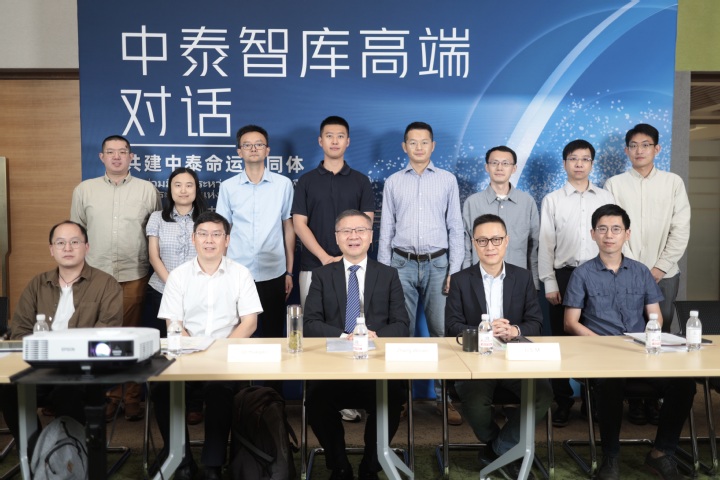On September 29, 2022, at the China-Thailand Think Tank Dialogue, Professor QI Huaigao, Vice Dean of the Institute of International Studies, Fudan University (IIS Fudan), delivered a keynote speech entitled “Sharing the Best Practices between Chinese Modernization and Thailand’s Sufficiency Economy Philosophy.” Themed “Building a China-Thailand Community with a Shared Future: Social and Sub-Regional Governance under Oriental Values,” the China-Thailand Think Tank Dialogue is jointly held by China Research Institute of Fudan University, Siam Think Tank of Thailand, and China Forum of the CISS Tsinghua University on September 29, 2022. (Prof. QI Huaigao speaking at the China-Thailand Think Tank Dialogue, September 29, 2022) Prof. Qi first analyzed the commonalities between Chinese modernization and Thailand’s Sufficiency Economy Philosophy (SEP). Founded in 1949, the People’s Republic of China has set out on a journey of building a modern socialist country. With a large population, Chinese modernization involves common prosperity for all, coordinated material and cultural progress, harmony between humankind and nature, and a path of peaceful development. King Bhumibol Adulyadej proposed the concept of SEP in December 1997. Since then, the SEP has become Thailand’s development compass. Moderation has since become the guiding spirit of Thailand. Chinese modernization and Thailand’s SEP have the following commonalities: they both emphasize sustainable development, both blaze new trails to modernization other than the western way, and both advocate common prosperity for all. Prof. Qi then went into detail about what China and Thailand can learn from each other. He pointed out that the philosophy of agricultural sufficiency economy from Thailand merited China’s attention. With King Bhumibol Adulyadej’s support, the SEP was applied to agriculture. And gradually, the concept of “New Theory Agriculture/New Theory Farming” was come into being, which boosted the local agricultural sufficiency economy development. As for Thailand, China’s political stability and policy continuity had reference value, as China’s long-term political stability reinforced the national policy continuity and economic development. Prof. Qi concluded his speech by underlying the significance of China and Thailand’s exchange on their modernization concepts and proposed three ways to strengthen bilateral exchange. First, to boost national development, China and Thailand should stride over the “middle-income trap” together while we learn from each other’s development concepts. For instance, China’s experience in poverty reduction and Thailand’s philosophy of agricultural sufficiency economy will help the two countries to avoid the middle-income trap. Second, China and Thailand share the oriental wisdom of national modernization. The modernization concepts of both China and Thailand are rooted in their respective traditions, cultures and values, which jointly nurture the oriental wisdom of modernization. Third, China and Thailand are inspirations to other developing countries in the world. Thailand’s SEP has enriched the efforts of people-centered sustainable development. Chinese modernization blazes a new trail to achieve modernization, which enlightens other countries and nations who want to speed up their development while preserving their independence. (Photo of the China-Thailand Think Tank Dialogue, online plus offline) Prof. XU Erming, Chairman of Siam Think Tank of Thailand, Mr. Rapipongs Banchong-Silpa, Director of Division III, Department of East Asian Affairs at Ministry of Foreign Affairs of Thailand, and CAI Weicai, Senior Vice President of KASIKORNBANK also delivered keynote speeches at the dialogue. (Group photo of the China-Thailand Think Tank Dialogue, Shanghai offline venue) Four distinguished guests delivered the opening remarks. They were Prof. ZHANG Weiwei, Dean of China Research Institute of Fudan University; Ms. Nitivadee Manitkul, Ambassador attached to the Ministry of Foreign Affairs of Thailand; Ms. PENG Fei, Counsellor at the Chinese Embassy in Thailand; and Mr. Chuwit Sirivajjakul, Executive Director of East Asia Region, Tourism Authority of Thailand. (Group photo of the China-Thailand Think Tank Dialogue, Bangkok offline venue) Round table panelists were Prof. ZHAI Kun, Vice Dean of the Institute of Area Studies at Peking University; Ms. Sukalin Wanakasemsan, Director of Global Academic Affairs, Chulalongkorn University; Mr. Chai Thanichanun, Chairman of Thai-Beijing Chamber of Commerce; Prof. ZOU Chunmeng, director of the Institute of Southeast Asian Studies, Yunnan University; and Assoc. Prof. Burin Srisomthawin, Dean of the Thai-Chinese International Management Institute, University of the Thai Chamber of Commerce. Dr. Eric Li, Vice Chairman of China Forum, and Ms. HAN Hua, executive committee member of China Forum, hosted the dialogue. (By ZHANG Zeyu)



Prof. QI Huaigao’s a Speech on Chinese Modernization at the China-Thailand Think Tank Dialogue
发布时间:
2022-09-30
访问次数:
88
